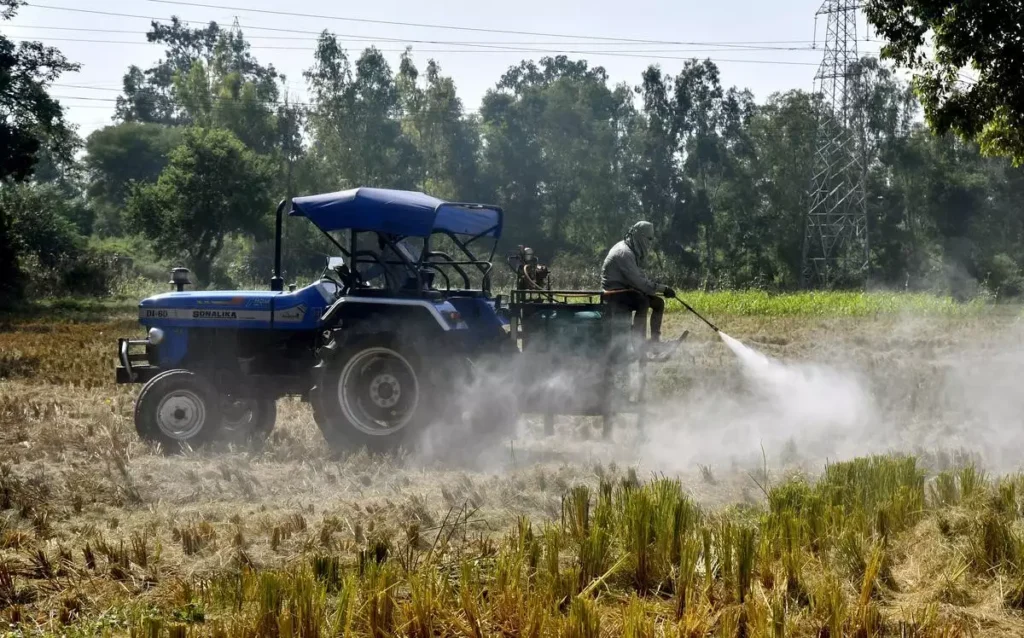The Delhi government is spraying a bio-decomposer solution on city farmlands to combat air pollution caused by stubble burning.
Key Highlights:
- The bio-decomposer is being used to prevent air pollution from stubble burning in Delhi.
- 5,000 acres of farmland will be sprayed free of cost.
- 841 farmers have registered for this initiative.
- This effort is part of Delhi’s strategy to curb seasonal air pollution and encourage sustainable farming.
About Bio-decomposer:
- Bio-decomposer is a microbial liquid developed by the Indian Agricultural Research Institute (IARI).
- It is a solution made of microbial cultures specifically designed to break down crop residues like stubble.
- Capable of degrading various agricultural residues such as paddy straw, soybean trash, and maize residues.
Features:
- Microbial Composition: Contains beneficial microorganisms that break down organic matter efficiently.
- Eco-friendly: Offers an environmentally safe alternative to the harmful practice of burning crop residues.
- Easy Application: Can be sprayed directly onto crop residues for quick decomposition.
- Rapid Decomposition: Decomposes agricultural residue in-situ within 25 days.
- Versatile: Effective on various types of agricultural waste, including vegetable, fruit, and flower waste.
Benefits:
- Soil Health: Enhances soil organic carbon and overall fertility, promoting healthier soil.
- Nutrient Recycling: Converts crop residues into simpler compounds, increasing nutrient availability for the next crop cycle.
- Reduces Pollution: Prevents stubble burning, a major contributor to air pollution.
- Cost-effective: Reduces the need for chemical fertilizers by naturally enriching the soil.
- Zero-waste Agriculture: Supports zero-waste farming practices by managing agricultural waste effectively.
- Enhances Organic Farming: Promotes organic farming by enriching soil without harmful chemicals.
Ref: Source
| UPSC IAS Preparation Resources | |
| Current Affairs Analysis | Topperspedia |
| GS Shots | Simply Explained |
| Daily Flash Cards | Daily Quiz |
Frequently Asked Question:
What is stubble burning, and why is it a concern?
Stubble burning is the practice of burning crop residues after harvest, contributing to air pollution and environmental degradation.
How does stubble burning affect air quality?
Stubble burning releases pollutants like particulate matter and greenhouse gases, worsening air quality and contributing to smog.
How does bio-decomposition benefit soil health?
Bio-decomposition enhances soil organic carbon, improves nutrient availability, and boosts overall soil fertility.



